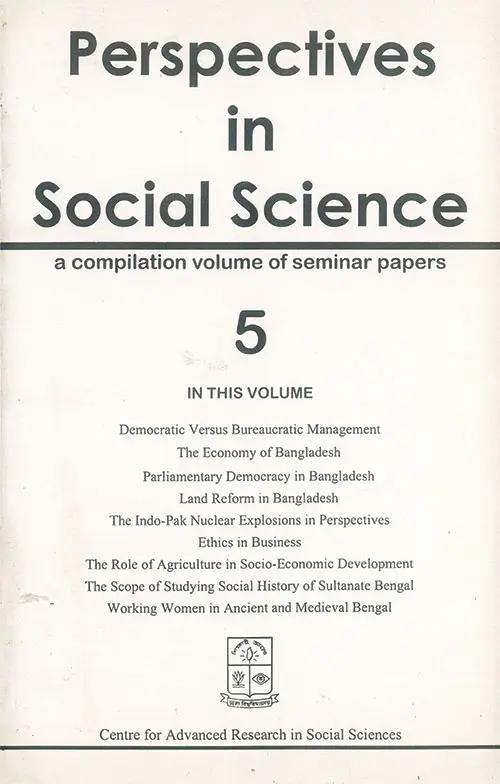
Perspectives in Social Science
Volume 5 October 1998
Perspectives in Social Science
Parliamentary Democracy in Bangladesh: An Assessment.
Perspectives in Social Science
Volume 5 October 1998
DOI:
ISSN :
Abstract
The constitutional and administrative norms of Bangladesh have been subjected to tremendous stresses ever since the liberation of the country in 1971. The governmental outlook underwent several changes during the twenty-seven years of this country's history. True it is that the triumphant political leaders did adopt parliamentary democracy soon after they returned to liberated Bangladesh. But this changed to one-party presidential rule in January 1975. Eight months later, a brutal coup overthrew and killed Sheikh Mujibur Rahman, the "father of the nation". From August 1975 to early 1979, the country was virtually ruled by the civil-military bureaucracy. Following the national parliamentary elections in February 1979, a gradual transition to a somewhat controlled democracy took place. But this did not last very long. A little over five years after Shiekh Mujib was assassinated, his successor, General Ziaur Rahman, was also gunned down by an army faction in May 1981. In March 1982, the military led by its Chief-of-Staff, Lt. General H.M. Ershad, once again moved in to take over the reins of government. General Ershad
